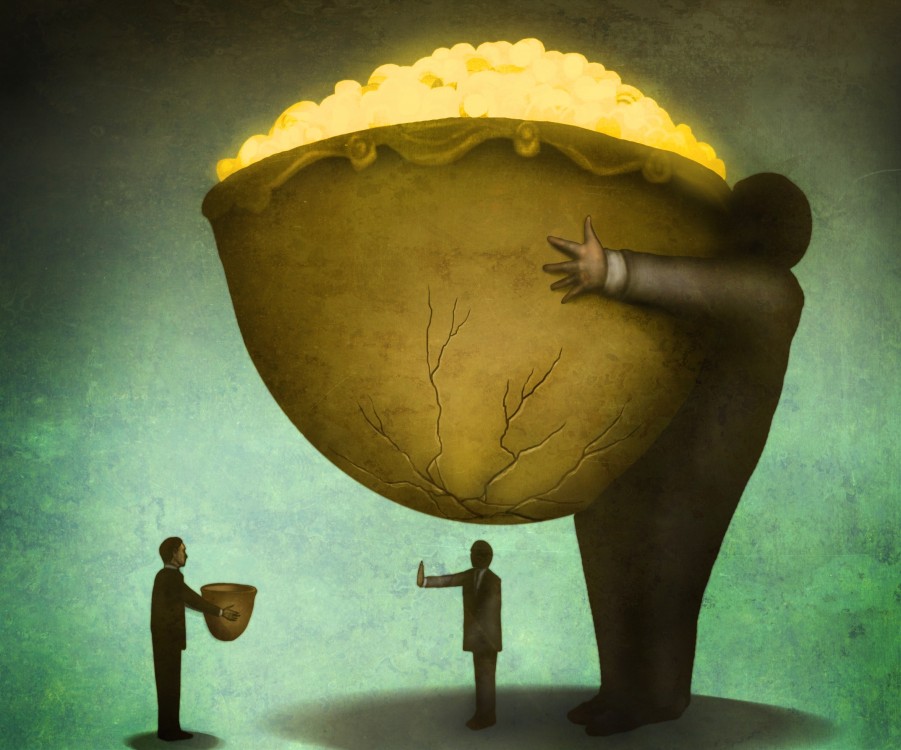
President Obama plans to propose raising $320 billion over the next 10 years in new taxes targeting wealthy individuals and big financial institutions to pay for new programs designed to help lower- and middle-income families, senior administration officials said Saturday.
In his State of the Union address Tuesday night, Obama will propose raising the capital gains and dividend tax rates to 28 percent for high earners; imposing a fee on the liabilities of about 100 big financial institutions; and greatly broadening the amount of inherited money subject to taxes.
Obama will also seek to boost private retirement savings by requiring employers without 401(k) plans to make it easier for full-time and part-time workers to save in individual retirement accounts, which could assist as many as 30 million people. The administration would provide small employers tax credits to cover costs.
Senior administration officials said that the package would highlight the president’s desire to boost taxes on the nation’s wealthy households and help lower- and middle-class families. New tax credits would help those in need of child care and households with two earners, they said, while other proposals — such as covering community college tuition — would help students.
The moves would “eliminate the biggest tax loopholes and use the savings to let the middle class get ahead,” said one of the senior administration officials who spoke on the condition of anonymity during a conference call with reporters to describe the plan before the president’s speech. This person also said that 99 percent of the impact of the tax increases would fall on the top 1 percent of earners.
The ambitious — and controversial — proposals demonstrate the White House’s increasing confidence about the trajectory of the U.S. economy. For the past year and a half, it has debated how much it could trumpet the recovery when so many Americans have not felt any change in their own economic outlook.
But the plan drew immediate fire from Republican — and could face criticism from some Democrats — who have in the past increased the amount of money exempt from inheritance taxes they branded “death taxes.” Most Republicans have long opposed increases in capital gains rates, and many favor eliminating the tax altogether.
“This is not a serious proposal,” wrote Brendan Buck, a spokesman for House Ways and Means Committee Chairman Paul Ryan (R-Wis.) in an e-mail late Saturday. “We lift families up and grow the economy with a simpler, flatter tax code, not big tax increases to pay for more Washington spending.”
“Slapping American small businesses, savers, and investors with more tax hikes only negates the benefits of the tax policies that have been successful in helping to expand the economy, promote savings, and create jobs,” Senate Finance Committee Chairman Orrin G. Hatch (R-Utah) said in a statement Saturday night.
“The president needs to stop listening to his liberal allies who want to raise taxes at all costs and start working with Congress to fix our broken tax code.”
The administration tried to head off some of that attack by asserting that elements of the package resembled proposals endorsed by Republicans. Officials also said that the capital gains tax rate was 28 percent during President Ronald Reagan’s terms in office. The Obama administration would also seek to limit the impact of the tax increases by saying the higher capital gains and dividend rates would apply only to couples earning more than $500,000 a year.
Officials said that the relatively low capital gains tax rate with a top rate of 20 percent has enabled the 400 highest-earning taxpayers — with $139 million or more of income — to pay an average rate of 17 percent when the top income tax rate is 35 percent.
The proposal to impose a 7 basis point fee on financial institutions with assets of more than $50 billion will also run smack into opposition from big banks and insurance companies. The administration compared the fee with a proposal by former House Ways and Means Committee chairman Dave Camp (R-Mich.) for an excise tax on large financial institutions. And last week, the House Budget Committee’s ranking Democrat, Rep. Chris Van Hollen (D-Md.), proposed a 0.1 percent surcharge on financial market transactions.
One of the senior administration officials Saturday said that the goal of the proposed fee from the White House was to discourage big financial institutions from excessive borrowing. He said that despite banking revisions after the 2008-2009 financial crisis, highly leveraged financial institutions “still pose risks to the broader economy,” adding that “this fee is designed to make that activity more costly.”
The economic recovery has freed the president to push for more ambitious domestic policies, many designed to help those in the poor and middle class who are still lagging behind. In the past week alone, Obama has announced new proposals on paid sick leave, free community college tuition and expanded broadband access. And while he might have trouble pushing those through the GOP-controlled Congress, Obama could still end up defining key issues for the elections in 2016.
“The battle for the next American agenda is already on,” said Donald A. Baer, chief executive of Burson-Marsteller and formerly chief speechwriter for President Bill Clinton. “There’s this effort to define a new growth and share agenda — growth but not only growth alone, and sharing the growth but not just sharing the wealth.” He said Obama’s college and broadband access are examples of proposals that could add to growth and give poor and middle-class people the tools to increase their share in it.
But Obama has to balance his rhetoric — between optimism and caution — by talking up the strong recovery while acknowledging that wage growth remains weak.
“There’s always been a tension between things are in fact getting better and people are not feeling great,” said Wade Randlett, a Silicon Valley entrepreneur and major Democratic donor. “One is economic fact, and the other is polling, which always catches up over time.”
Now the president is so comfortable with the idea of talking up the economic recovery that his advisers have branded it — “America’s resurgence” — and made it a regular talking point in Obama’s stump speeches and weekly radio addresses. And it is likely to be a centerpiece of the State of the Union address.
In bragging about performance, Obama administration officials point to factors including the best streak of job growth since the 1990s, a recovery in the housing market and healthier balance sheets for households, companies and the federal government. And they have contrasted that performance with the anemic economies of Europe and Japan as evidence that the United States has regained its global economic dominance in what Obama has called a “breakthrough year for America.”
But wages have been a stubborn reminder of the recovery’s shortcomings. In November, average hourly private-sector nominal wages inched up 6 cents, but in December, they fell 5 cents. After adjusting for inflation, wages for the entire year crawled up 0.7 percent, a modest amount in an economic recovery. It is a point that has been featured prominently in comments by Sen. Elizabeth Warren (D-Mass.), who has emerged as a leader of the Democratic Party’s liberal wing.
“I’m feeling better about the economy, but I don’t think we have in place a set of policies that will assure that this recovery will be either sustained or fully inclusive,” said Lawrence H. Summers, a former top adviser to Obama, former Treasury secretary and now a professor at Harvard University. “That’s why I think more needs to be done.”
The White House typically aims its messages directly at the middle class, but, partly in response to Warren, Obama administration officials are more comfortable talking about how some of its proposals benefit poorer Americans.
“We’re on offense on minimum wage and the environment,” Randlett said. “That’s the kind you only do when you have the leash of good economics.”
3 WAYS TO SHOW YOUR SUPPORT
- Log in to post comments














